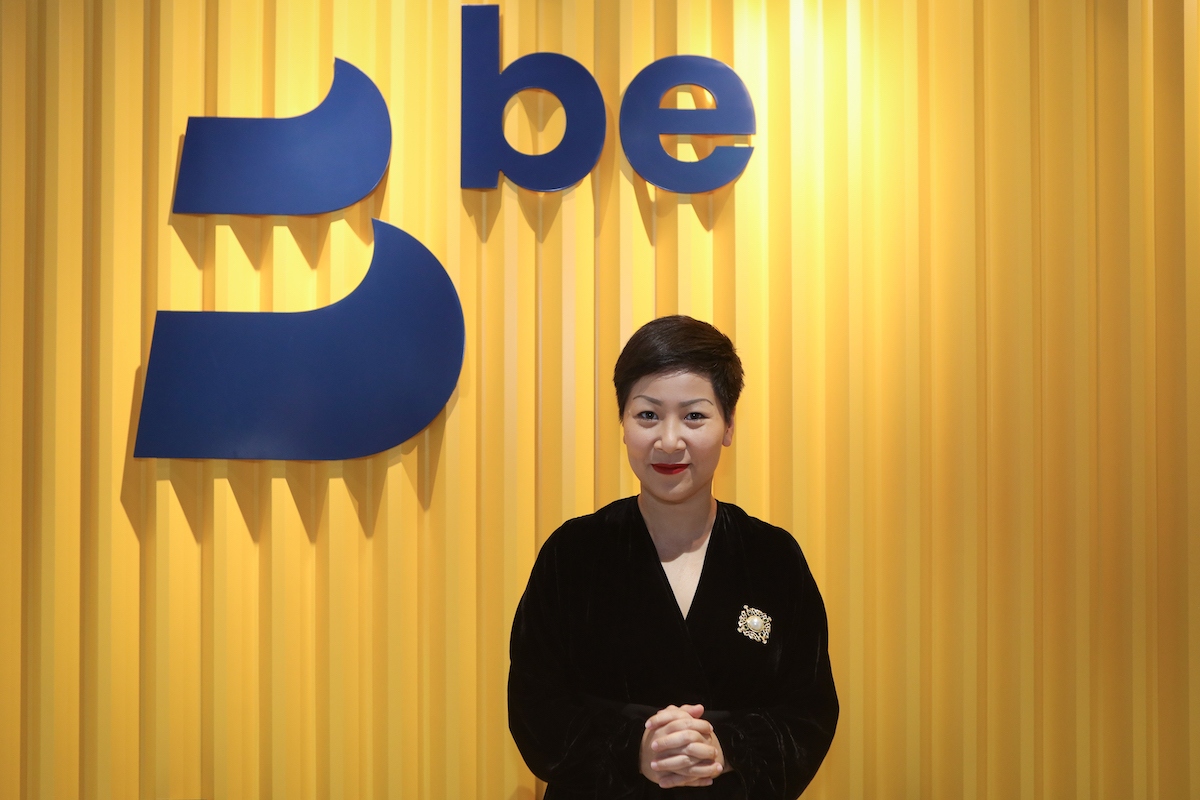Vietnamese ride-hailing startup Be Group’s alternative approach to success
Monday, 11/16/2020 02:39 (GMT+7)

Ride-hailing is an exciting space in Vietnam. Its major cities are home to many ride-hailing firms, with driver uniforms and car decals putting up a display of color on the city streets.
Among this sea of uniforms are drivers from Be Group, with their yellow- and black-striped jackets and helmets.
Founded in 2018, Be Group is a relatively new player in Vietnam’s ride-hailing sector, but it’s shaping up to be a worthy contender in the space.
The company has already seen over 9 million app downloads and grown its fleet to about 100,000 drivers. It achieved 16% market share in the first half of 2019, making it the second-largest ride-hailing firm in the country after Grab.
It’s also received the Fast Enterprise award at the 2020 Asia Pacific Enterprise Awards in Vietnam earlier this year, a marker of its success so far.
And according to CEO Nguyen Hoang Phuong, Be Group is also on course to breakeven this year – and achieve profitability in 2021, which she attributes to the company’s focus on building trust with its customers and not engaging in a price war with competitors.
Vietnam’s ride-hailing potential
Be Group is operating in what is shaping up to be the next hot market for ride-hailing in Southeast Asia.
Vietnam has one of the fastest-growing urban populations in the region, one that participates actively in the online economy. Ride-hailing firms have the opportunity to address some of the transportation issues faced by Vietnam’s larger cities, such as traffic congestion and the lack of public transportation options.
However, there are numerous roadblocks that ride-hailing firms need to overcome. For one, smaller local companies are up against the cash-burning tactics of regional giants Grab and Gojek, which have the resources to spend in order to increase market share and achieve brand recognition.
Additionally, local players may have trouble getting Vietnamese users on board with their platforms.
“Vietnamese consumers tend to favor foreign goods and services,” says Nguyen. She adds that people are often hesitant to try services provided by local players due to a perception that local products are of inferior quality.

Nguyen Hoang Phuong, CEO of Be Group / Photo credit: Be Group
Local firms also often have smaller fleet sizes compared to those of regional giants, which creates problems during peak hour surges when the demand outstrips the supply of drivers.
Plus, the Vietnamese government firmed up its regulations around ride-hailing services only earlier this year, bolstered by the resistance from local taxi operators. This means that companies are still in the process of navigating the new guidelines.
And these challenges have only been compounded by the Covid-19 pandemic, which has kept people at home and reduced the number of commuters drastically.
All of these make the Vietnamese ride-hailing market a challenging space, which is why Be Group is choosing to adopt a different approach toward developing its platform.
Partnerships are key
One of the key ways Be Group differentiates itself is by positioning the company as an “open platform.” According to Nguyen, it is veering away from the super-app strategy adopted by many other ride-hailing firms.
The company wants to be a mobility-as-a-service (MaaS) provider and is relying on building partnerships with other companies in order to grow its ecosystem in a sustainable manner. MaaS enables users to plan, book, and pay for multiple types of mobility services from a single platform – in this case, Be Group’s app.
“As an open platform, we have been and will continue to shake hands with other strategic partners to deliver their products to our customers,” says Nguyen. “Together with partners, we want to serve and give more value to customers as much as possible.”
The company operates BeBike and BeCar, its motorcycle- and car-hailing services, as well as its BeDelivery service for parcels.

Photo credit: Be Group
Users can also book taxi rides via BeTaxi, which was developed in partnership with Vinataxi, the Vietnamese arm of Singaporean transport firm ComfortDelGro. Be Group also has a partnership with EMDDI, a ride-hailing management platform for taxi companies, which allows users to book taxi rides from operators in the Vietnam Taxi Alliance.
In addition, it has partnered with Vietnam-based digital payments app Momo to process cashless transactions on its platform and with local online bus booking service Vexere to give users the ability to manage inter-city travel.
By working with different partners, Be Group is able to launch new services for its customers quickly without needing to dig too deep into its pockets – something that has helped with its bottom line. Notably, the company has so far avoided making forays into food delivery, which is an especially competitive sector in Vietnam.
Building loyalty
According to Nguyen, something else that sets Be Group apart from other ride-hailing firms is its focus on community and how it builds a small but loyal base of drivers and customers.
“Be Group balances benefits between them,” she explains.
The company has developed a strong support system for its drivers, ensuring that they receive a competitive income as well as the benefits of various training initiatives. Be Group is also rolling out a health insurance scheme for them, on top of the financial support it has been providing since Covid-19 first hit Vietnam.
The result of these efforts is an established fleet of professional drivers who deliver great service and ensure that customers are able to get a ride whenever they need one.
Be Group’s training process for drivers has also earned the company a reputation as one of the safest ride-hailing firms in the country, says Nguyen. This appeals to its main target audience: Younger, well-educated millennials who are willing to pay a little more for safety and comfort.
This has helped the company “flip the prejudice” that Vietnamese consumers have toward local goods and services, thanks to Be Group’s focus on delivering better experiences for both drivers and customers.
Riding ahead
While Covid-19 continues to weigh on the minds of businesses all around Southeast Asia, Nguyen is confident that the company will weather the crisis and come out ahead, as Be Group is no longer burning cash and has even found a niche for itself in Vietnam.
Be Group was able to pivot quickly at the beginning of the pandemic, rolling out its on-demand grocery delivery service BeShopping, which is still seeing a 200% to 300% growth every month, according to the CEO. The company also has plans to roll out a financial services platform in the near future.
Nguyen says that the startup has now captured between 20% and 30% of the Vietnamese ride-hailing market, and is confident that it is walking the path to profitability.
Ultimately, Be Group wants to be more than just a ride-hailing service.
“We’ll be a mobility platform that incorporates all transportation modes into our app to provide an all-in-one full solution for customers” she says. “We’ll be a true MaaS provider in Vietnam.”

